Jobs, Internships, and Graduate School
Bard Graduates at a Glance
-
92%Working, Volunteering, or Continuing Education
-
75%Working
-
17%Continuing Education
-
8%Still Looking
Learn More about Outcomes for Bard Graduates
Outcomes for the Class of 2022
Bard College graduates pursue an array of professional paths. Each year, the Career Development Office collects outcomes data* during the first six to eight months after graduation. For each class year, data is collected through our First Destination Survey (FDS), Alumni/ae Affairs, faculty and staff, employers, LinkedIn, and the final CDO Call Campaign. For the class of 2022, our knowledge rate is 56 %. The following information includes a summary of 2022 outcomes data:
- 92 % of 2022 responding graduates are either working, volunteering, or continuing education
- 75 % are working
- 17 % are continuing education
- 8 % are still or not looking
- *Data has been collected and reported in accordance with the National Association of Colleges and Employers Standards.
Long-Term Outcomes for Bard Graduates
Ten-Year Graduate School Completion
32% of the Bard College undergraduate class of 2008 have completed a graduate degree by 2019, according to National Student Clearinghouse data.
Long-Term Employer and Graduate School Summary
Bard College students and graduates have pursued internships, jobs and graduate school at a variety of organizations, companies, and institutions. You can download lists for each of these categories which include highlights from the past several years. Information featured in these downloads has been collected through our First Destination Survey (FDS), Alumni/ae Affairs, faculty and staff, employers, and LinkedIn.
Bard Meets World
Check out the career and internship profiles of some of our students and alumni/ae below. We also feature profiles and student and alumni/ae news on Instagram, @bardcollegecdo. Have some news to share or would like to submit a profile? Contact us!
Annual outcomes are reported six months after our First Destination Survey is completed for each graduating class year. A long-term summary of companies and organizations, graduate schools, and internship sites where our Bardians have worked or attended after, or interned during, their academic years at Bard College is available below.
Spotlight on Our Alumni/ae
-
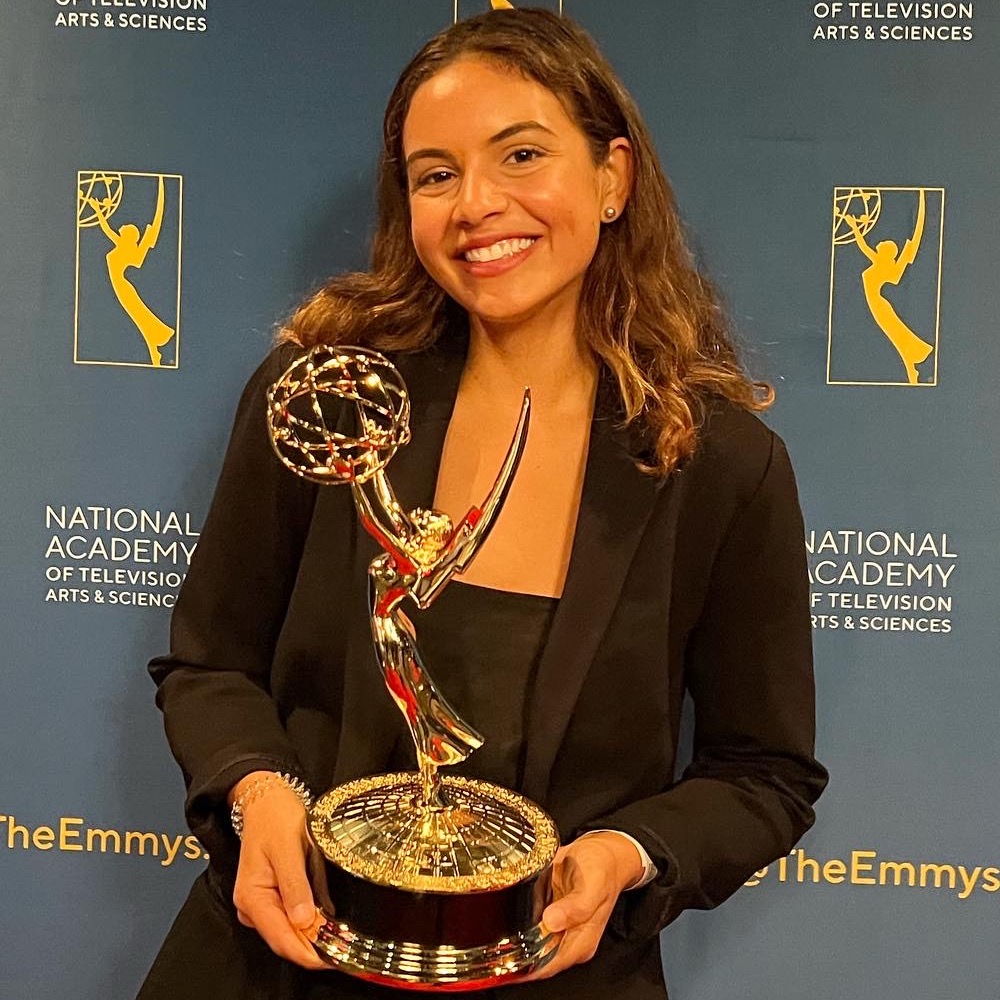 Acacia Nunes '18, Producer for Diane Sawyer, ABC NewsAcacia Nunes '18, who majored in Written Arts, is a producer for Diane Sawyer Reporting, a unit in the longform division of ABC News. Her team produces specials that air on Good Morning America, 20/20, World News Tonight, Nightline, and Hulu.
Acacia Nunes '18, Producer for Diane Sawyer, ABC NewsAcacia Nunes '18, who majored in Written Arts, is a producer for Diane Sawyer Reporting, a unit in the longform division of ABC News. Her team produces specials that air on Good Morning America, 20/20, World News Tonight, Nightline, and Hulu.
Acacia Nunes '18, Producer for Diane Sawyer, ABC News
Acacia Nunes '18, who majored in Written Arts, is a producer for Diane Sawyer Reporting, a unit in the longform division of ABC News. Her team produces specials that air on Good Morning America, 20/20, World News Tonight, Nightline, and Hulu.
1) Tell us about your current role and what you enjoy about it.
As a producer for Diane my responsibilities vary each day – I feel so lucky to be in a position where I am always learning something new. I prepare Diane ahead of major interviews with research, which often involves booking and interviewing experts to supplement her interviews and prepare her with questions. I also handle logistics for each shoot: hiring camera crews, booking locations, and directing shoots. After an interview, I work closely with Diane and the editors to get the show together. Before our pieces air, my teammates and I also conceptualize, write, and produce marketing materials and social media campaigns.
2) What was your path like from Bard to your current occupation?
I graduated from Bard certain that I wanted to go into magazine writing. During my senior spring and the summer that followed, I applied to dozens of positions in various fields — primarily media, but also philanthropy and education. Despite having very little literacy in television news, I applied to ABC at the suggestion of a close family friend. I began my career at the company working the overnight shift on the news gathering desk: staying on top of breaking news and coordinating with day-of-air shows. My hours were midnight to 9am, but working at the center of the news division was enormously helpful in learning the foundations of ABC’s operations—and getting a sense of the heart of the place. About five months into my time on the desk I met Diane’s team and was ultimately brought on as her assistant. Over the last four years I’ve transitioned to a producing role.
3) How did your Bard experience help prepare you for your career?
Working for the Bard Free Press was one of the best parts of my time at Bard. My two best friends and I joined during our first year and after working our way through articles and stories (and partly as a result of staff shortages) we went on to run it; I was the News Editor. My time at the Free Press taught me about pitching stories and how to do good reporting with little guidance. I also feel very lucky to have gone to a school that prioritized inventive viewpoints, held me to distinct standards, and encouraged a kind of authenticity of self.
4) What advice would you give to current students about “life after Bard”?
On jobs:
Cast a wide net when applying to jobs! And be willing to work hard. You might not know much about a subject or a field, but if you make the effort to learn as you go, you could find an unimagined success. Diane has said that journalism is about joy and purpose —about curiosity intersecting with passion. Try to find the thing that sits at that intersection for you.
On life:
Try not to be too hard on yourself. Transitions are by nature, unsteady. But it won't feel so hard forever.
If you’re like me and your whole graduating class moves to New York City – keep enjoying each other. It’s fun and helpful to have a familiar safety net. Making new friends is harder than it will have ever been without the help of schools and classmates — it’s ok if you don’t make them easily. But, of course, it’s cool to be the one who does.
5) What did you enjoy most about your years at Bard?
I’m fighting the inclination to say “the people I met, the friends I made” because it sounds so trite. So even though my friends from college are still my closest friends – even though they burst my heart and mind wide open in the four years we went to school together – I’ll say that I most enjoyed the uninterrupted time to learn and to work on writing, and the unhindered access to the professors who cared so much about us bettering ourselves through our writing and our work. I miss the space to be on that campus learning from those people – professors, friends and classmates alike.
6) Is there anything else you would like to share about navigating the professional world post-Bard?
Adapting to a certain type of professional world took some getting used to. Don't hesitate to seek out people for guidance. Feel free to write to me! -
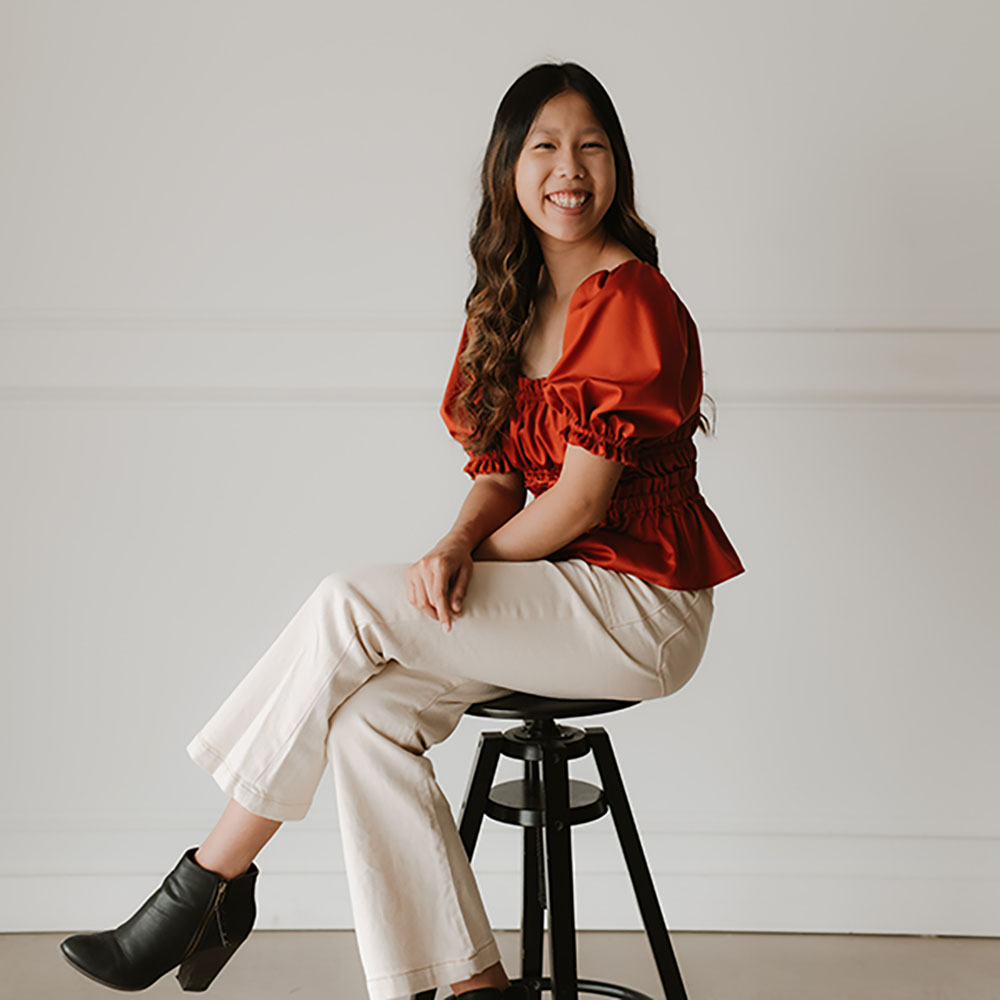 AnnAnn Puttithanasorn '23, Freelance PhotographerAnnAnn Puttithanasorn '23 majored in classical music performance in flute at Bard. She freelances in both photo and film, mainly photographing portraits, but also does digital tech and assists on sets for commercial campaign shoots and films.
AnnAnn Puttithanasorn '23, Freelance PhotographerAnnAnn Puttithanasorn '23 majored in classical music performance in flute at Bard. She freelances in both photo and film, mainly photographing portraits, but also does digital tech and assists on sets for commercial campaign shoots and films.
AnnAnn Puttithanasorn '23, Freelance Photographer
AnnAnn Puttithanasorn '23 majored in classical music performance in flute at Bard. She freelances in both photo and film, mainly photographing portraits, but also does digital tech and assists on sets for commercial campaign shoots and films.
1) Tell us about your current role and what you enjoy about it.
I am a full-time freelance photographer. What I love most about photo and film is being able to be on set and constantly collaborate with other artists and creatives. I think photography has opened up doors into spaces I couldn't have imagined I would ever be in and it's been such a fulfilling experience.
2) What was your path like from Bard to becoming a photographer?
So I actually did not study photography in college as a major. I am self-taught and learned through a lot of trial and error and by just shooting whenever I could. I started doing photography seriously in 2021, and it became my avenue to pay my way through the rest of my undergrad. I realized about halfway through college that I wanted to pursue photography as a career so I started picking up more jobs, both on campus and in New York City, while still balancing a full load of courses and rehearsals for my major. I was shooting a lot of weddings and portrait sessions on the side during my junior and senior years of college. I graduated a semester early in December 2022 and moved to New York City full time at the beginning of 2023. During my last semester, I was freelancing for three different departments at Bard while commuting to New York City every weekend for weddings and other freelance work there. I got very lucky during that final semester–I landed a full-time position in October 2022, working remotely as a production and digital assets manager for a photo agency. I learned a lot about the business side of the industry this way, and it definitely made my transition to the city a bit more smooth, financially. To be honest, it was definitely tough trying to prepare for my final music recital while balancing my freelance work in the city and this new job. I learned a hard lesson about how much I could physically and mentally handle, but I'm glad I did it. I honestly wasn't expecting to go full time into freelancing so soon but after a couple months post graduation, I realized that I was actually making more from my personal work consistently than I was at my full-time position, and it was a lot trying to balance two ends of the spectrum where one job was so rigid in structure and time while the other demanded flexibility. I went full time as a freelance photographer in mid-May of 2023.
3) How did your Bard experience help prepare you for your career?
I transferred to Bard after my first year at the Conservatory of Music at Purchase College because I wanted a more well-rounded education, and that's exactly what I got. I believe the most valuable things I learned at Bard were in the courses and experiences outside of my major. Being able to be exposed to different perspectives and ideas that I wouldn't have gotten if all I did was study music courses really made the difference. Bard also gave me the opportunity to start and run a club, which was not something I had planned at all. I ran a photography club called the Bard Arts Network and the goal was to bring in lecturers and resources that were not already available at Bard. Through this, I was able to raise funds for guest lecturers to come to Bard to speak about photography and the industry, and doing this also taught me about how to produce events.
4) What advice would you give to current students about “life after Bard”?
Be a sponge and listen more; you will learn way more in the "real world" than you do in school. My most rewarding lessons have been from listening to strangers and people who I was lucky enough to cross paths with. -
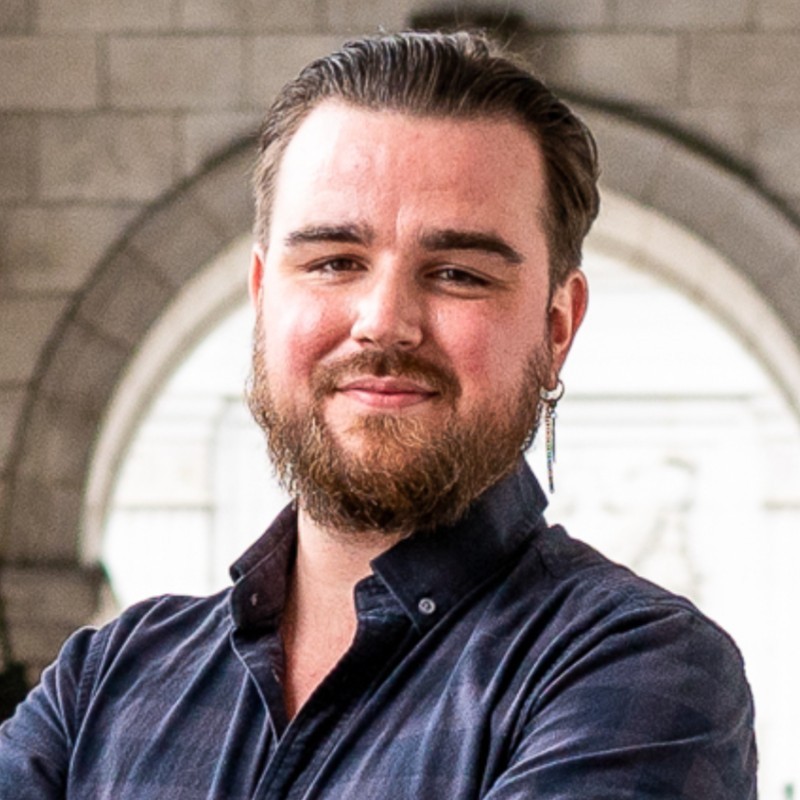 Benjamin Powers '14, Technology Reporter, The MessengerBenjamin Powers '14 majored in political studies and human rights. At The Messenger, he covers artificial intelligence and technology policy, spanning everything from the White House to private companies driving the development of AI.
Benjamin Powers '14, Technology Reporter, The MessengerBenjamin Powers '14 majored in political studies and human rights. At The Messenger, he covers artificial intelligence and technology policy, spanning everything from the White House to private companies driving the development of AI.
Benjamin Powers '14, Technology Reporter, The Messenger
Benjamin Powers '14 majored in political studies and human rights. At The Messenger, he covers artificial intelligence and technology policy, spanning everything from the White House to private companies driving the development of AI.
1) Tell us about your current role and what you enjoy about it.
Journalism is an act of both discovery and accountability. Yes it’s corny, but it’s one of the few mechanisms that sits outside of traditional centers of power like government and business. And today more than ever, it’s important to hold these institutions and individuals accountable.
In my reporting, I think of tech as an augmentor and mechanism of power. If you look at it through that lens, then everything from Elon Musk buying Twitter, to Meta instituting an Oversight Board, becomes an exercise in power—not just a feature or a bug of products you enjoy using (or don’t).
2) What was your path like from Bard to your current occupation?
I went to work for political campaigns and then to a non-profit focused on making big business more sustainable and socially responsible my first few years after graduating. For a long time, I thought I’d go to law school and focus on international human rights law.
But I came to see that journalism had a unique ability to hold power to account, and offered the option to explore an incredibly diverse range of subjects as well. I’ve covered everything from politics to the environment as well as the defense department and ethical AI.
3) How did your Bard experience help prepare you for your career?
The methods of inquiry I learned at Bard taught me that no one problem has a singular solution or point of view. In the same vein, it didn’t lock me into one specific career, which I am grateful for.
As a technology reporter, that same outlook has helped me realize that, actually, almost everything is a tech story. For example, a story about content moderators is also a labor story. A network of environmental observers can come together using tech and create a real time tracker of micro changes in the climate. And a story about AI can quickly turn into a discussion of copyright law.
4) What advice would you give to current students about “life after Bard”?
First, we all need an editor. Know when to ask for help or get a second opinion on your own work. Secondly, practical skills and passion are important. But so is money. I have forgone more lucrative opportunities to keep doing journalism because it’s something I think is important. But even when I worked as a freelance journalist, I was only able to continue because it was sustainable.
That being said, there are things to life beyond your career, and figuring out what kind of balance and boundaries you want is important. Certain benefits come with certain tradeoffs. My partner, for instance, wasn’t thrilled when I’d have to be taking phone calls with people in Kyiv, Ukraine, at 11:30pm as the Russian invasion was first unfolding.
5) What did you enjoy most about your years at Bard?
The friends I made along the way. I’m sure there is a more ambitious answer, but the fact that I’m still close with many of the people I’ve met there—including having many of them in my wedding party, should not be understated.
6) Is there anything else you would like to share about navigating the professional world post-Bard?
While Bard focuses heavily on areas of theory and close reading, certain things you can really only learn on the job and in the thick of it. But know that Bard has still prepared you. It just requires translating those complex reasoning skills into competency and confidence. Say yes—and follow through.
Those do need to be taken into consideration with practical skills you may learn on the job. From doing spot comms work to understanding what the word “hed” and “dek” meant when it came to journalistic jargon, there are many things that can only be learned by being in the thick of it. So while theory and the constant questioning Bard encourages have been foundational to my work, there is another answer that would simply state – you have to get the job done. -
 Xaver Kandler '18, Campaigns Coordinator, NY Renews, and Cofounder, Confluence FacilitationXaver Kandler '18 was an Environmental and Urban Studies (EUS) major at Bard. He is Campaigns Coordinator at NY Renews, a multi-racial environmental justice and climate coalition of over 350+ organizations and the force behind NY’s nation leading Climate Act. He also founded Confluence Facilitation with Naomi Roswell.
Xaver Kandler '18, Campaigns Coordinator, NY Renews, and Cofounder, Confluence FacilitationXaver Kandler '18 was an Environmental and Urban Studies (EUS) major at Bard. He is Campaigns Coordinator at NY Renews, a multi-racial environmental justice and climate coalition of over 350+ organizations and the force behind NY’s nation leading Climate Act. He also founded Confluence Facilitation with Naomi Roswell.
Xaver Kandler '18, Campaigns Coordinator, NY Renews, and Cofounder, Confluence Facilitation
Xaver Kandler '18 was an Environmental and Urban Studies (EUS) major at Bard. He is Campaigns Coordinator at NY Renews, a multi-racial environmental justice and climate coalition of over 350+ organizations and the force behind NY’s nation leading Climate Act. He also founded Confluence Facilitation with Naomi Roswell.
1) Tell us about your current role and what you enjoy about it.
At NY Renews, I direct our legislative campaigns and organizing efforts. I love the unique combination of the strategic and interpersonal aspects of the job and being able to think both big (social movement theory, campaign planning) and small (designing agendas, facilitating meetings, action planning). As cofounder of Confluence Facilitation, we provide creative and responsive facilitation to progressive, justice-oriented organizations. Facilitation is my deepest professional passion and I revel in the challenge of balancing the different needs and goals of the participants.
2) What was your path like from Bard to your current occupation?
After graduation and about half a year of traveling, I started to apply to jobs on the intersection of environmental justice and climate change. I ended up working for one of NY Renews Steering Committee members during the final push for New York’s climate law. To assist in the effort, I was temporarily loaned to NY Renews and helped organize the culminating event in our campaign where we brought hundreds of people to Albany.
After that transformational experience and the joy of passing the law, I knew I wanted to make my way back to NY Renews. So, about half a year and an open job posting at NY Renews later, I started full time at NY Renews.
3) How did your Bard experience help prepare you for your career?
Bard fundamentally shaped my understanding of the world, the systems and structures that shape it, and the way I want to be in it. Beyond honing my analysis and teaching me how to read, write, and think, being surrounded by inquisitive and curious people set me up to learn from my professional experiences.
And on a funnier, more simple note, I wrote my senior project on the intersection of the environmental justice movement and the climate movement, which is the area where I work today. So each day, I get to reflect on all the ways in which my senior project was only part of the picture.
4) What advice would you give to current students about “life after Bard”?
Be intentional about the people who you want to build a relationship with and be your authentic self within them! Meaningful relationships are the foundation across so many different types of work and will serve you for your entire career. And of course, don’t stress too much about it or be afraid to experiment and try different paths.
5) What did you enjoy most about your years at Bard?
I recently went back and visited Bard and a former professor (shoutout Susan Rogers!) and was just overcome by gratitude at the time I got to spend at Bard. Both students and professors were so smart, generous, and invested. It also brought back all of the memories with my friends and people in life that are still some of my deepest and most cherished friends.
Of course, and finally, how could you beat the place itself? Looking West everyday and seeing the Catskills and being surrounded by beauty was such a joy. -
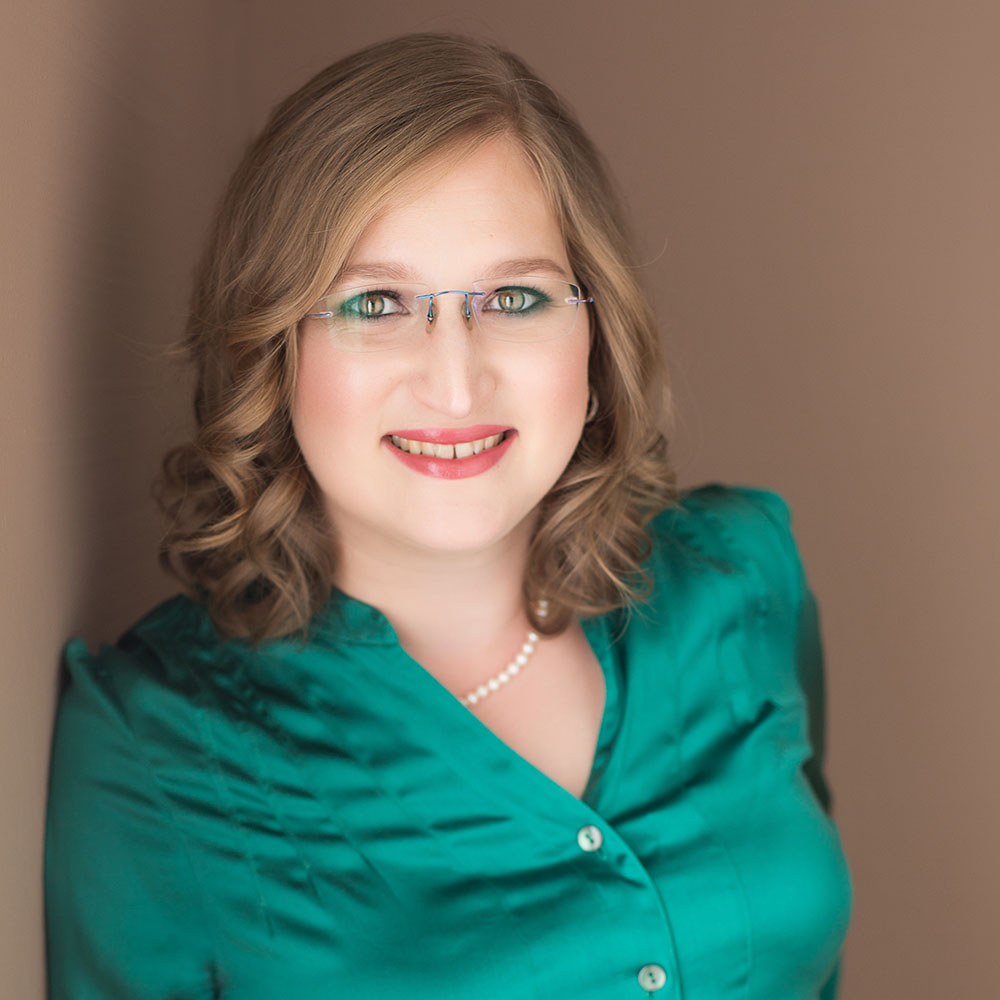 Monica Elkinton ’03, Assistant Municipal Attorney, Municipality of Anchorage, AlaskaMeet Monica, class of 2003. Monica studied Mathematics at Bard and went on to Northeastern University School of Law in Boston, Massachusetts.
Monica Elkinton ’03, Assistant Municipal Attorney, Municipality of Anchorage, AlaskaMeet Monica, class of 2003. Monica studied Mathematics at Bard and went on to Northeastern University School of Law in Boston, Massachusetts.

Monica Elkinton ’03, Assistant Municipal Attorney, Municipality of Anchorage, Alaska
Meet Monica, class of 2003. Monica studied Mathematics at Bard and went on to Northeastern University School of Law in Boston, Massachusetts.
1. Tell us about what you do and what you enjoy most about it.
I am an in-house attorney for the largest municipality in Alaska. Anchorage contains about half the population of Alaska, about half a million people. It's the most racially diverse city in the United States.
I defend the city from lawsuits like personal injury or employment discrimination. I am a civil litigator and go to court all the time, including doing jury trials. I also advise the municipal departments on legal issues. I like that it's a stable job, but with some excitement and variety, and the opportunity to learn all about how our local government works.
2. What was your path like from Bard to becoming an attorney?
I was a math major at Bard, and a TLS scholar. I loved participating in Math Table for lunch and Pi Day parties, but I knew math graduate school wasn't for me. When I was a First-Year, Lauren Rose said, "Math majors can do anything. They can even go to law school." In the 2000 election, the Dutchess County Board of Elections wouldn't let Bard students register to vote, so I organized a bunch of protests and we talked to a lawyer from the NY Civil Liberties Union and got help from the Dutchess County Democratic Party. Luckily, things changed (for a while). I befriended a party leader who worked for Senator Chuck Schumer. She offered me a part-time unpaid summer internship in her office. I worked there 10-4 on weekdays and made money by working at Stewart's Shop in Red Hook from 5-10am every day.
After Bard, I went to Northeastern University School of Law in Boston, which has paragraph evaluations instead of grades and focuses on public service and social justice instead of competition. It also has mandatory internships as part of the law school graduation requirements. Some students choose to do their internships in Boston, but I chose to do mine all over the country. I worked for the Wisconsin Supreme Court and then public defenders in Alaska, Kentucky, and Miami. After graduation I became a criminal defense attorney in Anchorage, and now I do civil law for the municipality.
3. How do you feel your experiences at Bard helped prepare you for your career?
I took as many non-major classes at Bard as possible. Music, religion, political studies, art, literature, history, whatever I could find. All of it helped me to figure out what I wanted to do for a career, along with what I did NOT want to do. Bard taught me to be creative and to not be too scared about thinking outside the box. A math background helps me line up my ideas in a linear way, and use logic to draw conclusions. Writing proofs in math is pretty similar to writing legal briefs. I wrote so many papers at Bard that writing is also completely second nature to me. I am always surprised how many people there are in the world that don't know how to write.
4. What advice would you give to current students about “life after Bard”?
When I started at Bard, I didn't really know what to major in. When I started law school, I didn't really know what kind of law I wanted to practice. It's ok not to know, and to be exposed to lots of different things. You'll figure it out.
Lots of people are looking for a "dream job", but your "dream job" may not actually exist. There are jobs that are very rewarding, but are very challenging. There are jobs that are very demanding of your time, but compensated better than a job with more predictable hours. Many jobs are driven by the personality of your supervisor or co-workers. Try to figure out what qualities in a job you need, and what qualities you can live without. Internships are helpful for this because they can give you insight into what you personally like or don't like about various jobs.
5. What did you enjoy most about your years at Bard?
I loved my department faculty, and how close the Math and CS Departments were. I also don't think I've ever had a chance since Bard to go to so many film screenings and art and photo shows. The student art and music were amazing!!
I loved being challenged by the other students too. I was at Bard during 9-11. One of my classmates was living in Tivoli in a dog cage inside his house for an integrated arts project. Visiting him to tell him what had happened the morning of 9-11 is an experience I will never forget.
6. Is there anything else you would like to share about Bard, careers, navigating the professional world, etc.?
Try out as many things as you want. You'll never know until you try. You can support yourself while still following your dreams. Get retail jobs or whatever you need to pay your loans and rent while pursuing your goal. There's a whole big world out there of possible jobs. Find as many people as possible who actually work in the field you want and talk to them about what it takes to get there. -
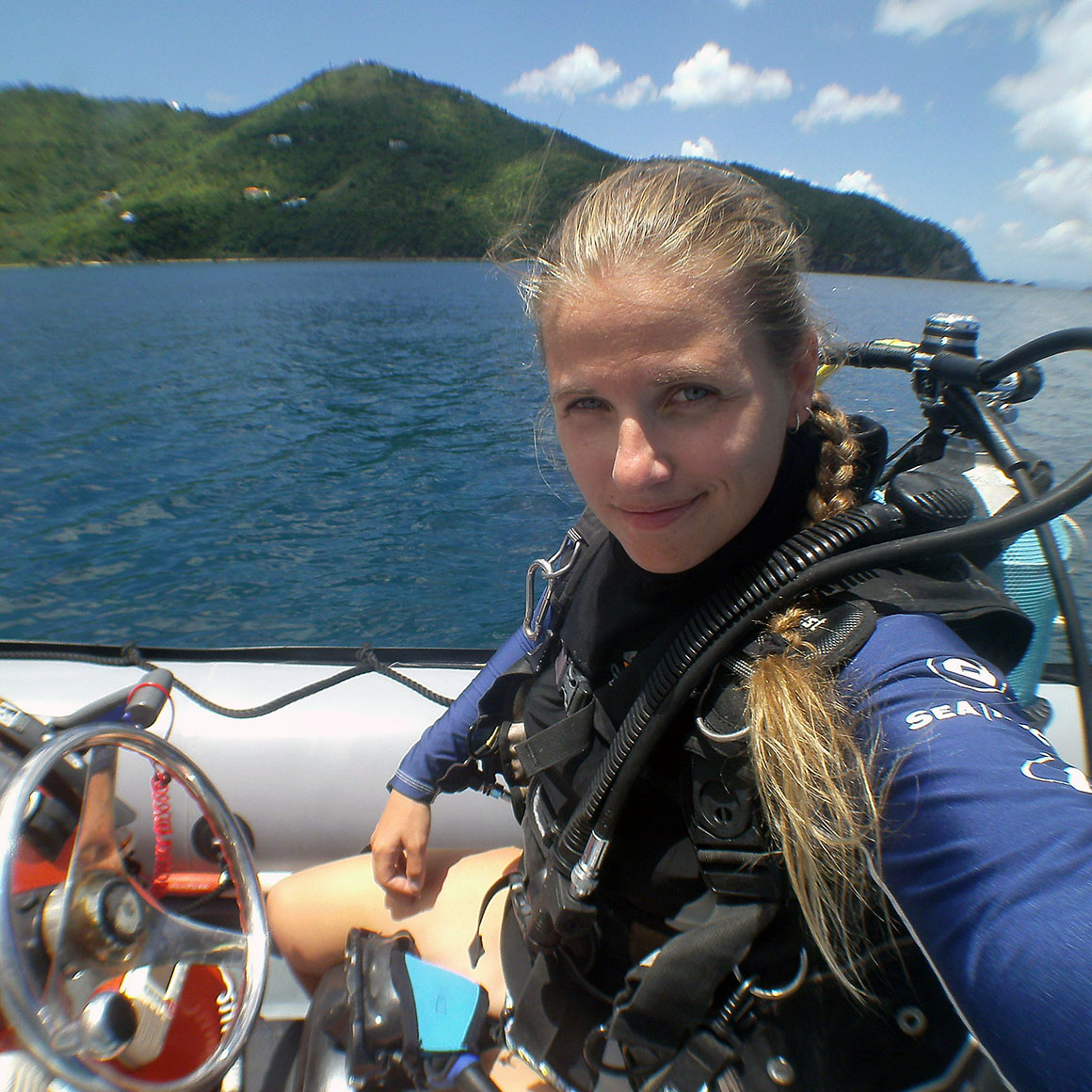 Tina Marie Doran ‘10, Medical Person in Charge / Mate / Dive Instructor, Sea | MesterTina was an Environmental Studies major at Bard and now handles a variety of roles aboard Sea | Mester, a sail training schooner that offers semester-abroad programs to undergraduate students.
Tina Marie Doran ‘10, Medical Person in Charge / Mate / Dive Instructor, Sea | MesterTina was an Environmental Studies major at Bard and now handles a variety of roles aboard Sea | Mester, a sail training schooner that offers semester-abroad programs to undergraduate students.
Tina Marie Doran ‘10, Medical Person in Charge / Mate / Dive Instructor, Sea | Mester
Tina was an Environmental Studies major at Bard and now handles a variety of roles aboard Sea | Mester, a sail training schooner that offers semester-abroad programs to undergraduate students.
1) Tell us about your current role.
I'm a teacher and mate aboard a 112ft sail training schooner that offers semester-abroad programs to undergraduate students. Up to 31 students and staff live on the boat together for 90 days at a time; every two years the ship circumnavigates the globe. I'm the ship's head medic. I also help students plan meals & buy groceries (they do all the cooking!), teach scuba diving, and teach one of the four accredited classes taught each semester: Student Leadership Studies. The thing I love the most about my job is the sense of community fostered by shipboard life. It's an amazing thing, to watch 30 people go from strangers to family over the course of 90 days -- all while having the adventure of a lifetime.
2) What lead you from Bard to working for Sea | Mester?
After I left Bard I moved first to Spain then to Honduras to get more involved with marine science and scuba diving. I lived in Honduras for two years teaching scuba before coming back to the states for grad school (NYU: MA in Environmental Conservation Education). In the mean time I picked up employment with GXG's high school branch, ActionQuest, which operates in the British Virgin Islands each summer. After I got my degree they were interested in moving me up to the big boats, and I jumped at the opportunity.
3) How do did your Bard experience help prepare you for your career?
Since I'm so involved in the marine environment, I use what I learned in my major daily -- but even if I hadn't, it wouldn't matter: Bard helped shape me into who I am today. Because of Bard I think more critically, debate civilly, and write with facility -- all hard skills that Bard drills into us, no matter what our major. I also learned from the tremendous example of my professors and advisers (especially Mark Lindeman!) about how to mentor my own students, how to inspire them to learn, how to facilitate excellent class discussions -- and more. I wouldn't trade my time in Annandale for anything.
4) What advice would you give to current students about “life after Bard”?
Those first few years are going to be hard. Your head and heart will be full of ideas, but breaking into the workforce can be challenging -- and that's not even getting into the nitty gritty details of adult life outside the Bard bubble. You'll have at least one "what am I doing with my life?!" crisis. You'll push through it. And a piece of advice my Captain once gave me that I'll pass along to you: "never set foot on a deck you're afraid to step off of." In other words: never be so hard up for work that you compromise who you are and what you stand for. There are plenty of other ways to pay off your tremendous student loan debt that don't involve working for someone who takes advantage of you -- and you will be able to find them. Bard grads are some of the most intelligent, resourceful, and outside-the-box people I know. You will find your niche. I promise.
5) What did you enjoy most about your years at Bard?
The lifelong friendships, the amazing faculty, walks out to Cruger Island, getting to (and being encouraged to!) take biology, russian literature, Spanish, and music lessons all at the same time, the curly fries at DTR, original Bard band concerts during Spring Fling, overhearing Klein conversations like "if there were a theme park based on the Western philosophical tradition, what kind of rollercoaster would Nietzche be?" -- and much, much more.
Contact Us
Location: Bertelsmann Campus Center, Room 201
Office Hours: Monday–Friday, 9AM – 5PM
Contact Us: 845-758-7539 or [email protected]![]()
![]()
![]()





